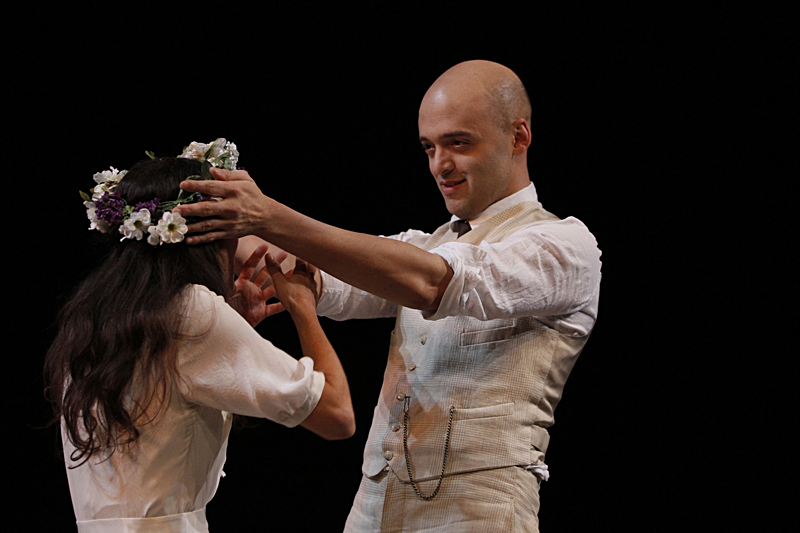This particular Seagull breaks your heart for an unexpected reason: It’s a glimpse of what theater could be like, but so rarely is. A luxurious nine-month rehearsal period (!) gives such depth to Chekhov’s populous ensemble piece, directed by John Langs, that its 13 characters seem to have known one another forever. All are so crystalline and legible, even in their downtime moments, that you can’t take your eyes off them.At a lakeside estate, mother Arkadina (Julie Briskman) and son Konstantin (Brandon J. Simmons) gather with their respective paramours—famous writer Trigorin (John Bogar) and aspiring actress Nina (Alexandra Tavares)—and other visitors for the premiere of Konstantin’s latest play. Leave it to breezily narcissistic Arkadina to eviscerate her kid with cruel dismissals and creepy reconciliations (Briskman nails each beat of her critique). Their Oedipal enmeshment and its underlying sadism shape nearly every other relationship in the play. It would be easy—almost inevitable—to overplay it, but the malice is judiciously contained within the production’s naturalism. Tavares, older than the traditional Nina, brings the role a flickering, appropriately unstable magic. (The title derives from Trigorin’s likening of her spirit to a seagull’s, before he squelches it.) In the world of The Seagull, nearly as capricious as that of A Midsummer Night’s Dream, everyone loves someone who doesn’t love them back—most hilariously demonstrated when Masha (Hannah Victoria Franklin) rages, mopes, dopes up, and honks like a moose to discharge her love for Konstantin. Meanwhile, her admirer-then-husband Medvedenko (the quietly sublime CT Doescher) is a meticulous portrait of wittingly humiliated devotion. The smaller Doescher makes his presence, the more anchoring it becomes—especially in scenes where tirades erupt around him.The otherwise pellucid show does get muddy in the final encounter between Nina and Konstantin. Older and devoid of her earlier magic, Nina’s agenda for returning to the estate is indecipherable. After the high-def emotional resolution of earlier scenes, this postscript seems anomalously out of focus. But it may help ease the transition back to our low-res world outside the theater. Augmented by Jennifer Zeyl’s elegantly rustic scene designs and Andrew D. Smith’s place-defining lighting, the Sorin estate is a place we can barely bear to leave. Then, all too abruptly, Chekhov kicks us out.stage@seattleweekly.com
This particular Seagull breaks your heart for an unexpected reason: It’s a








